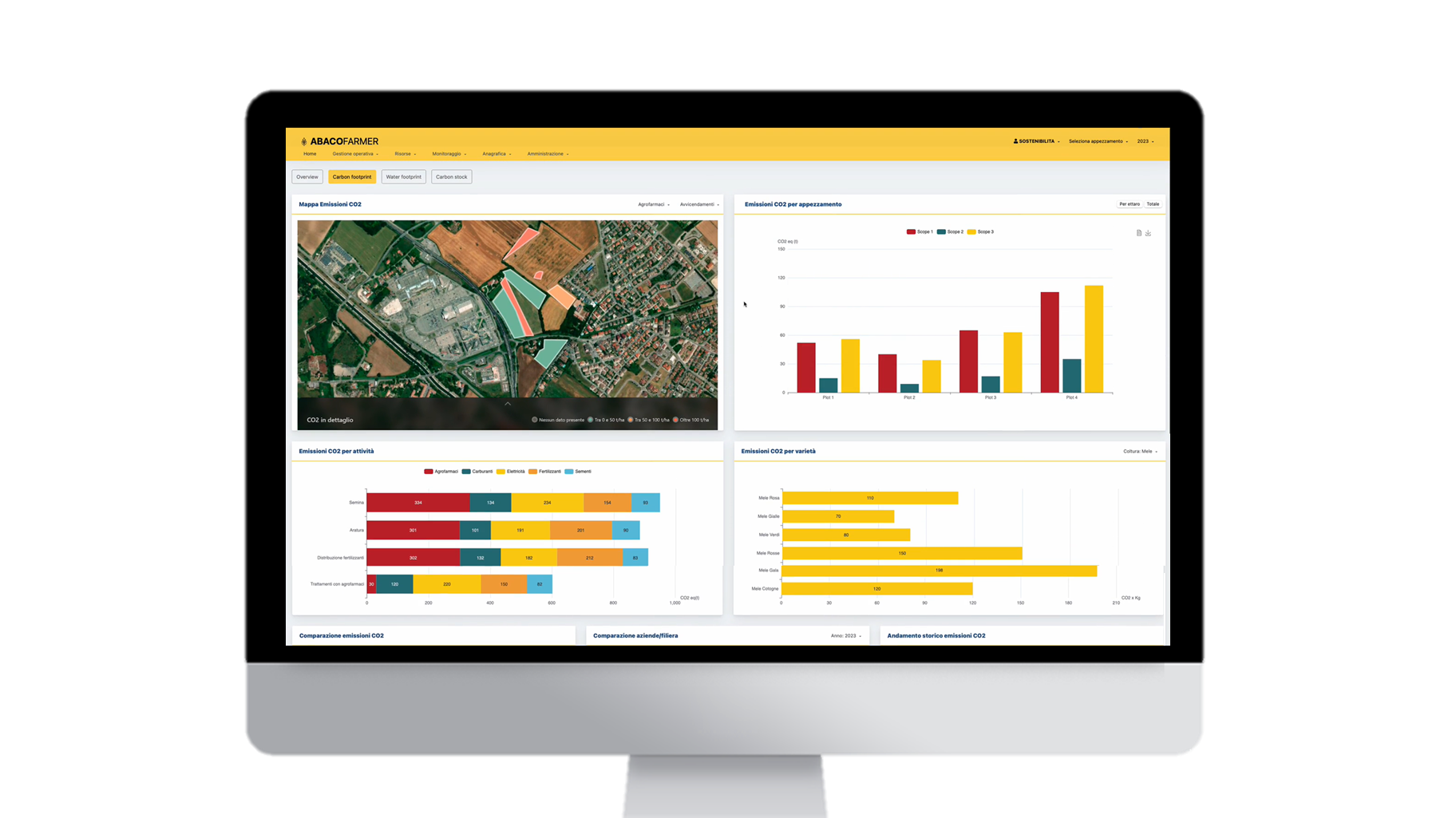Milan – Jolanda di Savoia, X November 2023. IBF Servizi S.p.A. (“IBF”), a company in the portfolio of the “Nextalia Private Equity” fund managed by Nextalia SGR (“Nextalia”), and part-owned by BF Agricola s.r.l. Società Agricola (part of the group headed by B.F. S.p.A. (“BF”), a company listed on Euronext Milan), has finalised the closing of the acquisition of Abaco S.p.A. (“Abaco”), a European leader in software solutions for the management and control of land resources, from the fund “Idea Taste of Italy”, managed by DeA Capital Alternative Funds SGR and founders.
With this acquisition, IBF strengthens its leading role in the Agritech sector in Italy and Europe, in line with its business plan, and lays the foundations for further growth internationally. The transaction takes place less than a year after the acquisition of IBF by Nextalia and the start of the strategic partnership with BF in the reference sector.
Abaco offers proprietary technological solutions to Public Administration, farmers and large companies in the Food sector to encourage the adoption of precision farming practices, to support the management of agricultural policies and to enhance the value of supply chain data by guaranteeing the traceability of production, positioning itself in the Agritech sector in a distinctive and complementary way with respect to IBF. With offices in Italy and the U.K., and activities in several countries around the world, Abaco has been able to anticipate the needs of an evolving market., This has cemented Abaco as a trusted partner to the most important industry players and governments at an international level, by supporting them in the challenges of innovation, sustainable development, traceability, and productivity.
Abaco will continue to be led by the current management team and CEO Antonio Samaritani, in coordination with IBF CEO Roberto Mancini.
Alberto Vigo, Senior Partner of Nextalia SGR, commented: “We are proud to support the creation of a leading European group in the Agritech sector by leveraging a solid and excellent Italian backbone. The transaction will allow IBF, under the leadership of the group’s CEO Roberto Mancini, to strengthen its role as a reference operator in supporting innovation in the Italian agri-food chain, promoting sustainable agriculture through the use of the most modern technologies.”
Filippo Amidei, Managing Director of DeA Capital Alternative Funds SGR, said: “We are proud to have been part of Abaco’s growth journey. Thanks to the commitment of the management team and its employees, the company has more than doubled turnover and EBITDA since 2020 and is now well positioned to meet the challenges of the next phase of growth thanks to the most advanced and comprehensive software platform in the industry.”
As part of the transaction, IBF was assisted by Intesa Sanpaolo, Cassiopea, Mediobanca and Rabobank as financial advisors, Orrick Herrington & Sutcliffe as legal advisor, RCCD as financing legal advisor, CIL Management Consultants for business due diligence, and Ernst & Young for financial & tax due diligence.
Abaco was assisted by GP Bullhound as financial advisor, McKinsey & Company for business due diligence, Ernst & Young for financial & tax due diligence, Marsh for insurance aspects, Portolano Cavallo and Gianni & Origoni for legal aspects.
Field activities, such as the use of technical machinery such as tractors, etc.
Electricity consumption.
Activities linked to production process and transportation of agricultural equipment and machinery.
Carbon stock (carbon storage) is one of the mitigation practices that consists of the ability to store carbon in soils and forests: that can be intensified by refining management practices. Agroecosystems can remove carbon dioxide from the atmosphere and can store carbon. Specifically, carbon dioxide is removed from crops through photosynthesis and then stored as carbon in plant biomass and soil. The ability of agricultural soils to collect and store carbon depends on several factors, including climate, soil and vegetation cover type, and agronomic management practices.
The water footprint is the volume of consumed water for direct or indirect use, measured in terms of water consumed for direct or indirect use (including by evaporation) and polluted, that is, a value of how eco-efficient a single daily action or an entire production sector is. The value is given by three components:

Volume of water evaporated from the soil during a production cycle.
Amount of water used during the irrigation phase of the crop.
Volume of water polluted during the production process, calculated as the volume of water required to dilute pollutants back to the initial quality standard.
Today, agriculture faces a massive challenge. We must face these challenges and work towards the ambitious goals set by the 2030 Agenda-among which are , to defeat hunger and act against climate change. -it is essential to adopt the principles of sustainability, applying proven solutions based on the study of real and measureable data. Innovation through precision agriculture and real-time analysis, is a frontline ally in making the necessary ecological transition in our industry, which can no longer be postponed.




